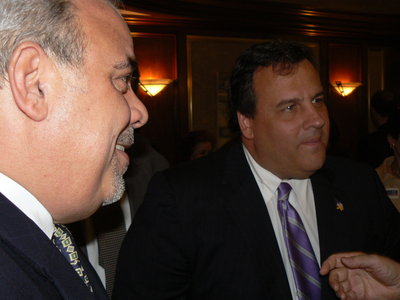Jersey City seems to be on the mind of Gov. Chris Christie’s education commission as they make recommendations to reform the state’s education system.
Two downtown Jersey City residents were on the team that put together the commission’s recent recommendation report – former Jersey City Mayor Bret Schundler and education reform advocate Shelley Skinner, both charter school advocates.
In addition, Schundler is Christie’s candidate to be the next education commissioner for New Jersey. Schundler, currently serving as interim commissioner, could not be reached for an interview last week after several calls.
“We will just have to be a little more efficient.” – Dr. Charles Epps
________
Jersey City
Jersey City’s public school system contains approximately 28,000 students and 3,346 teachers. It runs on a $629 million school budget.
The district includes nine of the 12 charter schools operating in Hudson County.
When Schundler was mayor, he was an advocate of giving parents vouchers to help them send their kids to private school rather than public.
How do the new administrations’ recommendations affect the district?
Jersey City Schools Superintendent Dr. Charles Epps discussed last week the recommendations given in the report.
On the issue of teacher pay, and funding for the school district, Epps said he knows the governor will have a tough time because of the state’s budget shortfall of between $1 and $2 billion dollars for the current fiscal year, and the estimated $11 billion deficit by state officials for the next fiscal year.
The Jersey City school budget for the coming school year is usually approved by the local school board in the spring of the previous year, and then voted upon by the public during the school board election in April.
The school district gets at least 75 percent of its funding from the state, with the rest coming from taxes and federal funds.
“There will be flat funding not just for Jersey City but possibly the whole state, and we will take a hit,” Epps said last week. “We will just have to be a little more efficient.”
As far as changing the teacher tenure requirement, Epps said that’s “debatable” and expects there will be much discussion between the state and the New Jersey Education Association, the powerful teachers’ union. In Jersey City, there are 515 teachers on the job without tenure.
Epps was asked if he expects to stay on in the superintendent post he has held since 2000 while Christie is in office. He said couldn’t answer that question until his contract is up for renewal by the school board. It expires June 30, 2011. Epps earns a base pay of $250,000 plus a $10,000 housing allowance, the kind of salary arrangement that catches the eye of a fiscal hawk like Christie.
Epps is also a Democrat who served in the state Assembly from 2006 to 2008.
Touts a new education future
Shelley Skinner has a 6-year-old daughter who goes to the same school where her mom works, the Learning Community Charter School (LCCS) on Kennedy Blvd. in Jersey City. Skinner is the school’s Director of Development and Outreach.
But it is Skinner’s other role as a trustee on the board of the New Jersey Charter Schools Association that helped her provide input into Christie’s education commission’s report.
She said the Jersey City school system was looked at as closely as all the other school districts in the state when the report was being put together.
But she said there will be some hard choices for Jersey City schools, specifically on the financial end.
“They have $5 million invested in administrator’s salaries in the central office, while in the meantime, the district’s enrollment declined,” Skinner said.
She commends for Christie for being pro-charter schools and having an open mind to bringing more state funding to charter schools.
Charter schools are usually founded by parents and/or educators, but get most of their funding from the state. Thus, they remain tuition-free public schools. They have less oversight from the local school board than regular schools.
Charter schools are supposed to receive 90 percent of the full funding spent per pupil in the regular public schools, which in Jersey City’s case is currently $17,368 per public school pupil. However, Skinner said that schools like LCCS receive about 50 percent at best.
Ricardo Kaulessar can be reached at rkaulessar@hudsonreporter.com.
